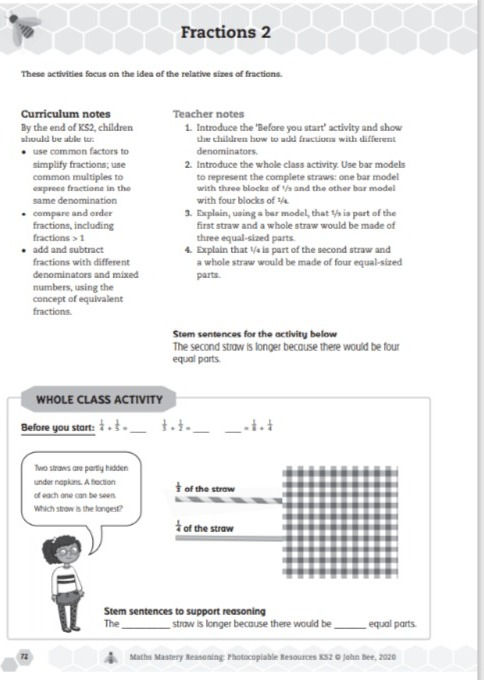Continuous professional development is sacred. In a culture where performance, accountability and measurability are king, finding time to develop can be a challenge. One way I have always sought to learn is through reading. I was lucky to publish 2 maths books with Bloomsbury which focus on mathematical reasoning.
It includes planning for mastery, concrete, pictorial and abstract approaches, key vocabulary, key concepts, variation theory and an approach specifically inspired by my time visiting schools in Shanghai with the Great North Maths Hub.
Each page starts with curriculum notes and teacher notes to briefly explain the activities in the book.
The whole class activity allows teachers, teaching assistants or parents to teach and model the particular concept. In this example, it explores the missing parts of a whole.
Each activity also starts with an arithmetic questions to practice before the main activity.
Stem sentences support reasoning by providing a clear structure so children can explain their thinking clearly and accurately. It also allows children to apply specific and technical mathematical vocabulary.
As you can see, the key vocabulary is displayed for the activity.
Activity 1 and 2 are similar to the whole class activity and allow children to practice what they have been taught. Variation theory is used carefully to keep variables the same whilst changing others.
This requires children to think creatively and imaginatively in order to reason successfully.
The books, for Key Stage 1 and Key Stage 2, cover the whole curriculum. They are available as hard copies to photocopy or as Ebooks and support a whole school approach to teaching for mastery.



Comments